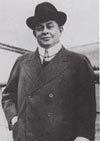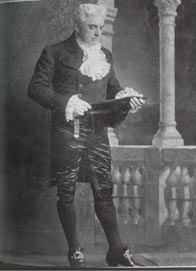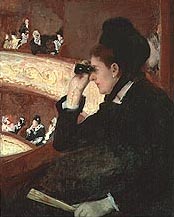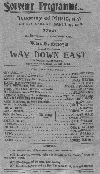|
In The Incorporation of America Alan Trachtenberg dispenses with the theatre by quoting Neil Harris's statement that "the thrust toward the spectacular had taken over mass entertainment." I am glad that Trachtenberg mentions theatre, at all, but this brief attention is precisely how theatre was treated at the time. Theatre, the people thought, had nothing to do with business. A court case in 1907 which was brought by the state of New York against the Theatrical Syndicate for "criminal conspiracy in restraint of trade" was dismissed with Judge Otto Rosalsky statement,"In light of the lexicographer's definition of trade, commerce, play, entertainment, and theatre,...it seems to me that plays and entertainments of the stage are not articles of useful commodities of common use, and the business of owning theatres, and producing plays therein, is not trade, and that, therefore, the defendents did not commit acts injurious to trade or commerce." The courts did not view theatre as business.
I, however, would like to investigate how the theatre, like
the American society in general, transforms to a system that is run by
large conglomerates creating monopolies. With the advent of the railroad
individual stock companies started yielding to Combination companies rehearsed one play per season to
be performed not only at home but on The Road, as created by railroad stops. Theatres created vertical integration, so that the theatre was surrounded by such businesses as the costume shop, the wig shop, and print shops. Businessmen appeared to organization the expanding art.
I will begin my study with these businessman who entered the scene with
The Theatrical Syndicate in 1896, a trust run by Klaw and Erlanger, which
was only replaced by another monopoly, the Shubert
Organization. In response to the control that outside businessmen began
to have over the theatre, the actors recognized the change in their situation from that of an artist
working for other artists who understood their situation to that of a worker hired to perform a task. With this realization, actors began to unionize to enable their voices to be heard again. My study will end with the actors' strike of 1919 and the momentary triumph of the worker over the corporation.
|






